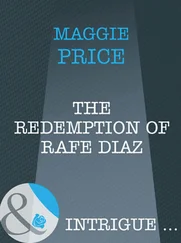Stanley Weyman - Historical Romances - Under the Red Robe, Count Hannibal, A Gentleman of France
Здесь есть возможность читать онлайн «Stanley Weyman - Historical Romances - Under the Red Robe, Count Hannibal, A Gentleman of France» — ознакомительный отрывок электронной книги совершенно бесплатно, а после прочтения отрывка купить полную версию. В некоторых случаях можно слушать аудио, скачать через торрент в формате fb2 и присутствует краткое содержание. Жанр: foreign_language, foreign_prose, на английском языке. Описание произведения, (предисловие) а так же отзывы посетителей доступны на портале библиотеки ЛибКат.
- Название:Historical Romances: Under the Red Robe, Count Hannibal, A Gentleman of France
- Автор:
- Жанр:
- Год:неизвестен
- ISBN:нет данных
- Рейтинг книги:4 / 5. Голосов: 1
-
Избранное:Добавить в избранное
- Отзывы:
-
Ваша оценка:
- 80
- 1
- 2
- 3
- 4
- 5
Historical Romances: Under the Red Robe, Count Hannibal, A Gentleman of France: краткое содержание, описание и аннотация
Предлагаем к чтению аннотацию, описание, краткое содержание или предисловие (зависит от того, что написал сам автор книги «Historical Romances: Under the Red Robe, Count Hannibal, A Gentleman of France»). Если вы не нашли необходимую информацию о книге — напишите в комментариях, мы постараемся отыскать её.
Historical Romances: Under the Red Robe, Count Hannibal, A Gentleman of France — читать онлайн ознакомительный отрывок
Ниже представлен текст книги, разбитый по страницам. Система сохранения места последней прочитанной страницы, позволяет с удобством читать онлайн бесплатно книгу «Historical Romances: Under the Red Robe, Count Hannibal, A Gentleman of France», без необходимости каждый раз заново искать на чём Вы остановились. Поставьте закладку, и сможете в любой момент перейти на страницу, на которой закончили чтение.
Интервал:
Закладка:
"Done?" he stammered. Her words, her air, brought him to earth again. "Done? Yes, if you believe me."
"I do not," she answered proudly. "If that be all, be satisfied, Monsieur. I do not believe you."
"Then tell me," he retorted, after a moment of stunned surprise, "why, if he was not on our side, do you think we let him remain here? Why did we suffer him to stay in a suspected house bullying us, and taking your part from hour to hour?"
"He has a sword, Monsieur," she answered, with fine contempt.
" Mille diables! " he cried, snapping his fingers in a rage. "That for his sword! No. It was because he held the Cardinal's commission; because he had equal authority with us; because we had no choice."
"And that being so, Monsieur, why are you now betraying him?" she asked keenly.
He swore at that, feeling the stroke go home. "You must be mad," he said, glaring at her. "Mad, if you cannot see that the man is what I tell you he is. Look at him! Listen to him! Has he a word to say for himself?"
Still she did not look. "It is late," she replied, coldly and irrelevantly. "And I am not very well. If you have quite done, perhaps you will leave me, Monsieur."
" Mon Dieu! " he exclaimed, shrugging his shoulders; "you are mad! I have told you the truth, and you will not believe it. Well, on your head be it then, Mademoiselle. I have no more to say. But you will see."
He looked at her for a moment as if he thought that she might still give way; then he saluted her roughly, gave the word to the sergeant, turned, and went down the path. The sergeant went after him, the lanthorn swaying in his hand. We two were left alone in the gloom. The frogs were croaking in the pool; the house, the garden, the wood, – all lay quiet under the darkness, as on the night when I first came to the Château.
And would to Heaven I had never come! That was the cry in my heart. Would to Heaven I had never seen this woman, whose nobility and faith and singleness were a continual shame to me; a reproach, branding me every hour I stood in her presence, with all vile and hateful names. The man just gone, coarse, low-bred, brutal soldier as he was, man-flogger, and drilling-block, had yet found heart to feel my baseness, and words in which to denounce it. What, then, would she say when the truth some day came home to her? What shape should I take in her eyes then? How should I be remembered through all the years-then?
Then? But now? What was she thinking, now, as she stood, silent and absorbed, by the stone seat, a shadowy figure with face turned from me? Was she recalling the man's words, fitting them to the facts and the past, adding this and that circumstance? Was she, though she had rebuffed him in the body, collating, now he was gone, all he had said, and out of these scraps piecing together the damning truth? The thought tortured me. I could brook uncertainty no longer. I went nearer to her and touched her sleeve. "Mademoiselle," I said, in a voice which sounded hoarse and forced even in my own ears, "do you believe this of me?"
She started violently and turned. "Pardon, Monsieur," she answered. "I had forgotten that you were here. Do I believe-what?"
"What that man said of me," I muttered.
"That!" she exclaimed; and she stood a moment gazing at me in a strange fashion. "Do I believe what he said, Monsieur! But come, come," she continued, "and I will show you if I believe it. But not here."
She led the way on the instant into the house, going in through the parlour door, which stood half open. The room inside was pitch dark, but she took me fearlessly by the hand, and led me quickly through it, and along the passage, until we came to the cheerful lighted hall, where a great fire burned on the hearth. All traces of the soldiers' occupation had been swept away. But the room was empty.
She led me to the fire, and there, in the full light, no longer a shadowy creature, but red-lipped, brilliant, throbbing with life, she stood opposite me, her eyes shining, her colour high, her breast heaving. "Do I believe it?" she said. "I will tell you. M. de Cocheforêt's hiding-place is in the hut behind the fern-stack, two furlongs beyond the village, on the road to Auch. You know now what no one else knows, he and I and Madame excepted. You hold in your hands his life and my honour; and you know also, M. de Berault, whether I believed that tale."
"My God!" I cried. And I stood looking at her, until something of the horror in my eyes crept into hers, and she shuddered and stepped back.
"What is it? What is it?" she whispered, clasping her hands. And with all the colour gone from her cheeks she peered trembling into the corners and towards the door. "There is no one here. Is there any one-listening?"
I forced myself to speak, though I shook all over, like a man in an ague. "No, Mademoiselle, there is no one here," I muttered. And then I let my head fall on my breast, and I stood before her, the statue of despair. Had she felt a grain of suspicion, a grain of doubt, my bearing must have opened her eyes. But her mind was cast in so noble a mould, that having once thought ill of me and been converted, she could feel no doubt again. It was her nature to trust all in all. So, a little recovered from her fright, she stood looking at me in great wonder; and at last she had a thought.
"You are not well?" she said suddenly. "It is your old wound, Monsieur."
"Yes, Mademoiselle," I muttered faintly. "It is my old wound."
"I will call Clon!" she cried impetuously. And then, with a sob, "Ah! poor Clon! He is gone. But there is Louis. I will call him, and he will get you something."
She was gone from the room before I could stop her; and I was left leaning against the table, possessor at last of the great secret which I had come so far to win. Possessor of that secret, and able in a moment to open the door, and go out into the night, and make use of it-and yet the most unhappy of men. The sweat stood on my brow, my eyes wandered round the room; I even turned towards the door, with some mad thought of flight-flight from her, from the house, from everything. And God knows if I might not have chosen that course; for I still stood doubting, when on the door, that door, there came a sudden hurried knocking which jarred every nerve in my body. I started. I stood in the middle of the floor, gazing at the door, as at a ghost. Then glad of action, glad of anything that might relieve the tension of my feelings, I strode to it, and pulled it sharply open.
On the threshold, his flushed face lit up by the light behind me, stood one of the knaves I had brought with me to Auch. He had been running, and panted heavily, but he had kept his wits. He grasped my sleeve instantly. "Ah! Monsieur, the very man!" he cried, tugging at me. "Quick! come this instant, and you may yet be first. They have the secret. They have found Monsieur."
"Found whom?" I echoed. "M. de Cocheforêt?"
"No; but the place where he lies. It was found by accident. The lieutenant was gathering his men to go to it when I came away. If we are quick, we may be there first."
"But the place?" I said.
"I could not hear where it was," he answered bluntly. "We can hang on their skirts, and at the last moment strike in."
The pair of pistols I had taken from the shock-headed man lay on a chest by the door. I snatched them up, and my hat, and joined him without another word; and in a moment we were running down the garden. I looked back once before we passed the gate, and I saw the light streaming out through the door which I had left open; and I fancied that for an instant a figure darkened the gap. But the fancy only strengthened the one single iron purpose which had taken possession of me and all my thoughts. I must be first. I must anticipate the lieutenant, and make the arrest myself. I ran on only the faster.
Читать дальшеИнтервал:
Закладка:
Похожие книги на «Historical Romances: Under the Red Robe, Count Hannibal, A Gentleman of France»
Представляем Вашему вниманию похожие книги на «Historical Romances: Under the Red Robe, Count Hannibal, A Gentleman of France» списком для выбора. Мы отобрали схожую по названию и смыслу литературу в надежде предоставить читателям больше вариантов отыскать новые, интересные, ещё непрочитанные произведения.
Обсуждение, отзывы о книге «Historical Romances: Under the Red Robe, Count Hannibal, A Gentleman of France» и просто собственные мнения читателей. Оставьте ваши комментарии, напишите, что Вы думаете о произведении, его смысле или главных героях. Укажите что конкретно понравилось, а что нет, и почему Вы так считаете.












